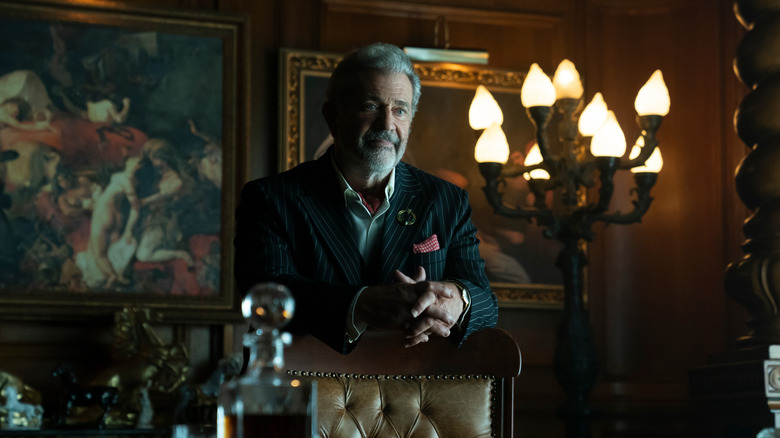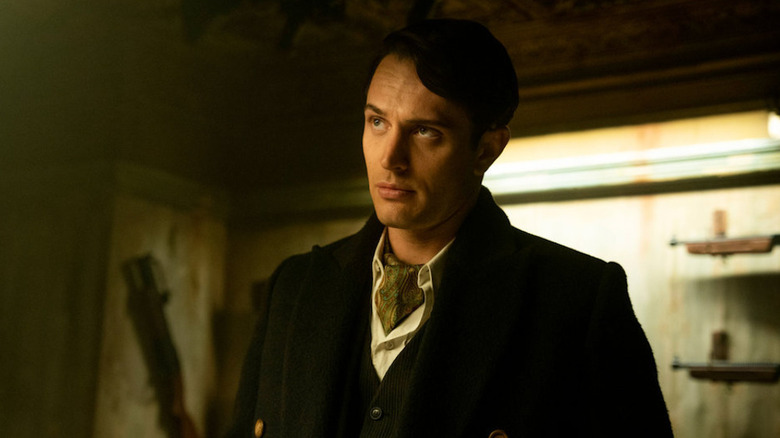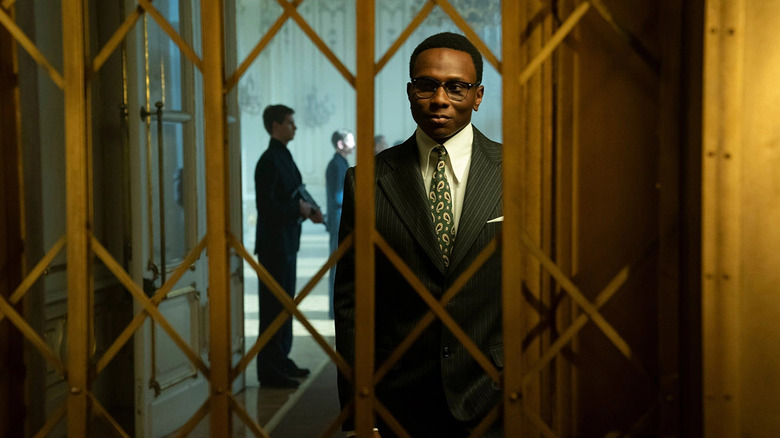The Continental Review: You'll Want To Check Out Immediately
- Offers more depth to Winston and Charon's relationship
- Very light on action, and what action there is doesn't get close to "John Wick" standards
- Heavier on exposition than any entry in the "Wick" franchise has any right to be
The "John Wick" franchise has become thrillingly unpredictable on our screens. What started out as a relatively straightforward hitman revenge thriller has blossomed into a globe-trotting franchise with a murderer's row of oddball characters who feel like they've stepped out of a '90s beat-em-up video game. There are no rules or logic to be found, which is part of its enduring charm; even as the lore expands, it is fundamentally ridiculous enough to not require the closest inspection from viewers, as its deliberately illogical set pieces tend to fall apart under close scrutiny. They're extravagantly staged movies with wall-to-wall dazzling fight sequences, but the world they inhabit isn't designed for detailed analysis.
Even after four movies, it's hard to predict just where the franchise can lead us next, especially after the high watermark of "John Wick: Chapter 4." But in its transition to the small screen with "The Continental: From the World of John Wick," the universe of "Wick" has become something I could never have anticipated: utterly boring.
Too much exposition, not enough action
Set in the late 1970s, the three-part prequel "The Continental: From the World of John Wick" is an origin story of sorts for Winston Scott, the manager of the titular hitman hotel played by Ian McShane on the big screen. As much as the character is a fan favorite, I find it highly unlikely that anybody was desperate for the tale of how he came to run the hotel — as with all lore in this franchise, trying to determine the specific ins and outs of how this world operates makes it lose all functionality, not to mention robbing it of a certain mystique. That this universe is populated seemingly entirely by hitmen to the extent that there is a chain of hotels just for them is an amusing novelty. The joke is diluted when the series tries to explore how this would function when it should be nothing more than a means of establishing locations for fight scenes.
And believe me, what "The Continental" lacks in fight scenes — it isn't until the final hour of episode three that we get anything more than brief fistfights or clumsily staged shoot-outs — it more than makes up for in a plodding revenge narrative directly linked to how the hotel is managed. Before Winston took over, the New York Continental was managed by Cormac (Mel Gibson), a boo-hiss baddie played by the easiest actor in Hollywood to root against. Winston got dragged back over to New York after starting a life for himself as an entrepreneur in London when his brother (Ben Robson) stole an important token from the hotel — the younger sibling has been drafted to get it back, but things quickly go awry, and suddenly he's putting a team together to get his revenge on the owner.
On the face of it, the plot itself is as minimal and as easily digestible as any of the four prior "John Wick" movies, which may appear convoluted on paper but have always revealed the inner machinations of this underworld primarily through their action scenes. Very rarely do they take a breath for exposition. The opposite is true in "The Continental" — any action is brief and lackluster, so almost the entire running time of each feature-length episode is devoted to how Winston manages to get his crack team together. The process soon becomes an endurance test, considering that nobody is fleshed out beyond a typical action movie archetype. This is surprising considering that the prequel series offers far more parallels with real-world events than the more heightened movies, taking place during the "Winter of Discontent" recession, and with Winston's journey theoretically mirroring that of the mafia's ruthless rise to power over a city. It ends up saying less by trying to tackle more.
I checked out very early, and so will you
Chad Stahelski, the director behind all four movies to date, is not involved with this project beyond a seemingly obligatory executive producer credit, and it's telling. Guiding the ship in his place are creators Greg Coolidge, Shawn Simmons, and Kirk Ward. None of them have extensive experience in the action movie genre — Coolidge is the more qualified of the three, and that's largely because he wrote the screenplay for the Kevin Hart action-comedy "Ride Along," hardly worthy of being referenced in the same breath as this franchise. After being made aware of this pedigree, his fingerprints over this series should become more apparent; every single gag lands with a thud, with not a single lame punchline effectively sold by the cast.
In the case of Mel Gibson, the only recognizable performer within this ensemble, he's very evidently phoning it in — a once-charismatic actor not even rising to the levels of snarky machismo the very thinly written role requires. In other cases, it's due to distracting miscasting; young Winston is played here by Colin Woodell, whose lack of resemblance to McShane isn't as big of an issue as his lack of vocal similarities. Yes, it's always refreshing in a prequel when an actor doesn't merely imitate an already-famous performance and makes the character their own, but this take on Winston might as well be a different hotel manager altogether.
Only Ayomide Adegun as the young Charon (played by Lance Reddick in the movies) stands out, and that's largely because he's the only character who benefits from being further in the spotlight, effectively written in a way that helps deepen our understanding of this distinctly supporting figure. His death scene in the most recent movie was so abrupt, so soon before the main course of action began, that it didn't give his old friend Winston enough time to grieve. The only benefit to "The Continental" is offering a deeper context to their relationship, which makes that moment surprisingly powerful in retrospect. It's just a shame Winston himself isn't as interesting in "The Continental" as McShane's portrayal is in the "John Wick" films.
The final hour of the 97-minute finale offers the carnage "Wick" fans will have been waiting for, but by that point, it's too little, too late. It certainly made me rethink checking into "The Continental" ever again.
"The Continental: From the World of John Wick" premieres on Peacock on Friday, September 22.
This piece was written during the 2023 WGA and SAG-AFTRA strikes. Without the labor of the writers and actors currently on strike, the series being covered here wouldn't exist.


